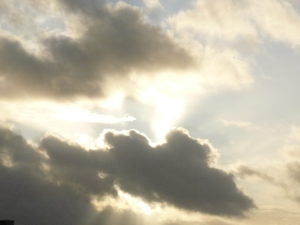 Chlorophyll allows light energy to be transformed into glucose from carbon monoxide (CO) and water. So, in a way, plants are nourished by light. Human beings are also called to be nourished by light. And the light has been given to us in Christ. Christ himself is nourished by the will of his Father, “My food is to do the will of the one who sent me” Jn. 4:34.
Chlorophyll allows light energy to be transformed into glucose from carbon monoxide (CO) and water. So, in a way, plants are nourished by light. Human beings are also called to be nourished by light. And the light has been given to us in Christ. Christ himself is nourished by the will of his Father, “My food is to do the will of the one who sent me” Jn. 4:34.
However, we need to make a real effort to let the light nourish us- because in today’s world we seem to be surrounded by darkness- the Covid-19 pandemic, natural disasters (floods, fires), abuse scandals in the Church, threats to democracy in so many countries, migrants pushed to the fringes of society…
We need to develop our own personal chlorophyll (and collective?) that will help us consume light. This is one of the issues for integral ecology. What type of chlorophyll is it? For us, as religious, it is probably the assiduous reading of the Word of God, prayer, recourse to the sacraments: that is our chlorophyll kit that transforms light energy into the nourishment that is in harmony with our existence.
Here is our choice: feed on the light or feed on the darkness. The philosopher Simone Weil, who died in 1943, reminds us of this in a very clear way in her book, “Gravity and Grace”: “There is only one fault: an incapacity to feed upon light. For where the capacity to do this has been lost, all faults are possible.” In the end, to feed upon light is to contribute to the life of universal fraternity according to Pope Francis’ call in his latest Encyclical, “Fratelli tutti”. From light to universal friendship…

Sister Anne Chapel, sscj